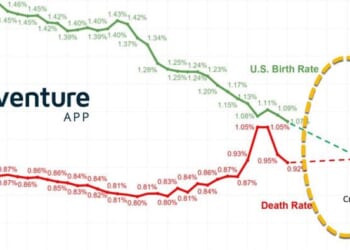U.S. Defense Secretary Pete Hegseth’s sweeping reforms to secure “drone domain dominance” by 2027 are accelerating, following a Reuters report last week that the U.S. Army plans to acquire at least one million drones in the coming years.
The initiative, driven by the Pentagon’s DOGE modernization team, marks a major shift toward a new generation of lean, agile defense firms, breaking from the legacy industrial-military complex plagued by chronic cost overruns, schedule delays, and ballooning backlogs. Wall Street analysts are calling the pivot a watershed moment for the Pentagon’s procurement system, signaling the most significant overhaul of U.S. defense acquisition strategy in decades.
According to a memo obtained by Bloomberg News, Defense Secretary Pete Hegseth is preparing to launch a new “economic defense unit” to issue updated contracting guidelines and a “playbook of modern commercial contract and agreement structures.”
“These large defense primes need to change to focus on speed and volume, and invest their own capital to get there,” Hegseth said in a recent speech, adding, “If they do not, those big ones will fade away.”
Here’s a roundup of the latest commentary from Wall Street analysts (courtesy of Bloomberg) offering their take on the Pentagon’s sweeping procurement pivot:
Bernstein (Douglas S. Harned):
- Called the speech “the most aggressive yet” on defense-acquisition reform, warning that large, established primes may face challenges after years of tailoring their operations to legacy processes. Harned expects newer, commercially oriented defense firms to be near-term winners, given the department’s bias toward off-the-shelf, agile solutions.
Melius Research (Scott Mikus):
- Said Hegseth’s memo and remarks should serve as a wake-up call for both primes and suppliers. The planned drive to heighten competition threatens to erode the value of proprietary intellectual property that major contractors have long relied on for pricing power.
Truist Securities (Michael Ciarmoli):
- Observed that this time “feels different,” citing urgency to field next-generation technology and avoid lagging adversaries. Legacy contractors are “in the crosshairs,” while nimble entrants “sit in the catbird seat.” The effort will dismantle rigid Pentagon bureaucracy and force the industry to overhaul its own business models.
TD Cowen (Roman Schweizer):
- Noted that Hegseth criticized big primes for cost overruns, schedule slips, and bloated backlogs, urging them to assume more risk and boost internal R&D and capital spending. He concluded that the remarks signal “significant and sweeping changes” to weapons development, procurement, and the broader defense-industrial landscape.
All the talk about modernizing the Pentagon’s procurement system is very encouraging, but it won’t mean much without a major reshoring or friendshoring of supply chains for critical semiconductors and rare earth minerals, the lifeblood of next-generation drones, fifth-generation attack aircraft, night vision, and the list goes on and on. Without securing these inputs, America’s odds of achieving true battlefield dominance in the 2030s remain up in the air. Time to put reshoring into hyperdrive.
Loading recommendations…

















